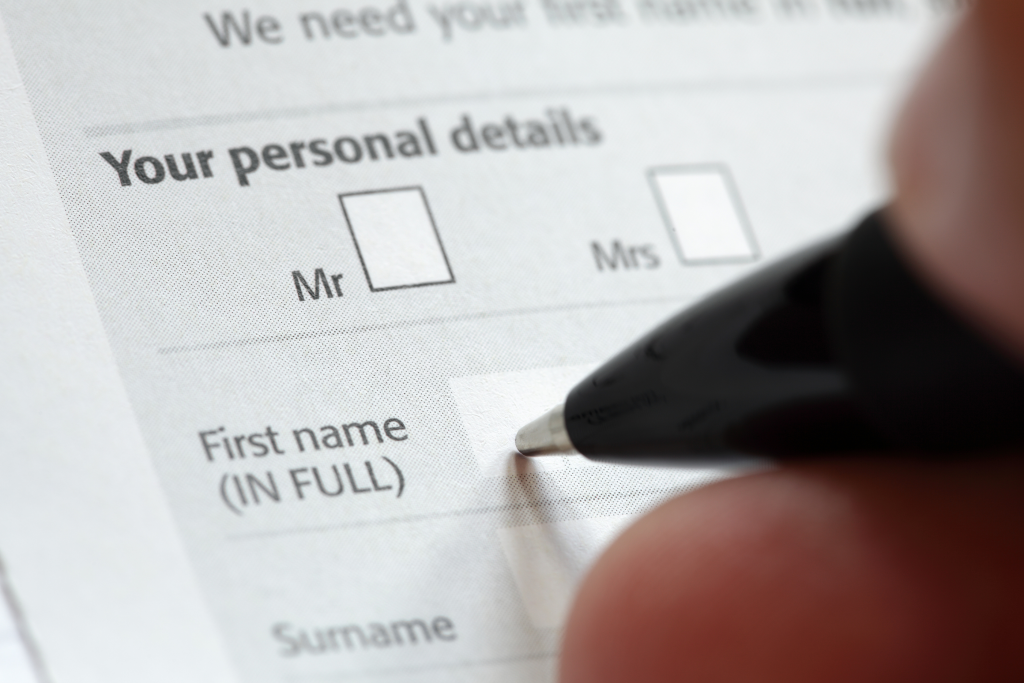Changing your name is a significant decision that requires careful consideration and adherence to legal processes. Whether you are changing your name due to marriage or divorce, gender identity change, or personal preference, understanding the steps involved in legally changing your name is essential. In this comprehensive guide, we will walk you through the process of legally changing your name, from filing a name change petition to updating your identification and important documents.
Deciding to Change Your Name
Deciding to legally change your name is a personal choice that should not be taken lightly. In most cases, you must have a valid reason for changing your name, and a judge’s approval is required. It’s important to note that changing your title (e.g., Mr., Ms., Mrs.) does not require a legal process as it is not a legal designation.
Understanding the Legal Name Change Process
If you decide to proceed with a legal name change, you must go through a court process and obtain a name change order. The exact steps may vary depending on your state’s laws, but the overall process remains similar regardless of the reason for the name change.
Research Your State’s Laws
Start by familiarizing yourself with the name change laws in your state. Each state may have specific requirements and procedures that you need to follow. Visit your state’s official website or consult legal resources to understand the specific guidelines for your jurisdiction.
Gather Required Documents
Before filing a name change petition, gather the necessary documents. These typically include:
-
- Proof of identity and current name (e.g., valid driver’s license)
- Required forms for the name change petition, verification, and notice of petition
- Method of payment for filing fees
Ensure that all documents are completed accurately, and keep copies for your records.
File a Name Change Petition
Once you have prepared the required documents, file a name change petition with the Clerk’s Office of the Superior Court in your county. Contact the Clerk’s Office for specific instructions on how to submit the petition and pay the associated fees. Some forms may need to be notarized by a Notary Public.
After filing the petition, you will receive a court case number, which should be retained for future reference.
Publish a Notice
In many states, it is necessary to publicize your name change request by publishing a notice in a designated newspaper for a specified period, usually four weeks. This allows anyone who may object to the name change to come forward. File a notice form and submit payment to the Superior Court for publication.
Keep a copy of the Publisher’s Affidavit as proof that the notice was published.
Attend a Hearing
Following the waiting period and publication period, attend a hearing with the Superior Court. This is the final step in the name change process. Complete all required paperwork for the hearing and bring all relevant forms and documents with you. Arrive early to your assigned courtroom to ensure a smooth process.
During the hearing, the judge will review your case and make a decision. If your name change request is approved, you will receive a certified copy of the final order.
Obtaining a Court Order and Updating Your Documents
Once the court approves your name change request, there are additional steps you need to take to ensure that your new name is recognized and updated on your identification and important records.
Obtain a Court Order and New Birth Certificate
After receiving the court’s approval, you will be issued a court order legally changing your name. It is recommended to obtain a certified copy of the order for future reference. Additionally, your state will issue a new birth certificate reflecting your new name. This document will be crucial for updating other identification and records.
Update Government and Financial Records
With the court order and new birth certificate in hand, it is time to update your name on government and financial records. Start by visiting the relevant agencies to update your identification documents, such as your driver’s license and Social Security card. Each agency may require specific forms and supporting documents, so be prepared with the necessary paperwork.
Some of the records that may require updating include:
-
- Driver’s license or identification card
- Social Security card
- Passport
- Insurance policies
- Bank accounts
- Credit cards
- Voting registration
- Car registration and title
- Mortgage or lease agreements
To ensure a smooth transition, it is crucial to be thorough in updating your name on all relevant documents and accounts.
Inform Other Institutions and Individuals
In addition to government and financial institutions, inform other relevant parties about your name change. This may include:
-
- Employer and human resources department
- Healthcare providers
- Utility companies
- Educational institutions
- Professional licensing boards
- Post office (if you have an address change)
Remember to update your name on social media accounts if desired, although this can be done independently of the official name change process.
Name Change Based on Marriage
If you are changing your name due to marriage, the process may differ slightly. In many states, if you changed your name when you applied for your marriage license, your marriage certificate serves as your legal name change document. You do not need to go through the entire name change process again.
To change your last name after marriage, simply present a copy of your marriage certificate to the relevant agencies, such as the Department of Motor Vehicles and Social Security Administration. It is important to note that changing your first name is typically not permitted through a marriage name change.
Name Change After Divorce
In the case of a divorce, you may choose to change your name back to your premarital name. During the divorce proceedings, you can request a name change, and if approved by the court, your divorce decree will grant you the legal ability to change your name without the need for additional court orders.
After obtaining the divorce decree, follow the same steps outlined earlier to update your identification and records with your new name.
Changing a Child’s Name
If you wish to change a child’s name, such as after a divorce or adoption, specific procedures must be followed. Typically, both parents must agree to the name change, or a court order is necessary. Consult with a family law attorney to understand the requirements and process for changing a child’s name in your jurisdiction.
Changing your name is a significant step that requires adherence to legal procedures. By following the steps outlined in this guide, you can ensure a smooth and successful name change process. Remember to research your state’s laws, gather the necessary documents, file a name change petition, publish a notice, attend a hearing, obtain a court order, and update your identification and records accordingly. Whether you are changing your name due to marriage, divorce, gender identity, or personal preference, this guide provides a comprehensive overview to help you navigate the process with confidence.
Changing your name is an empowering decision that allows you to define your identity. By following the legal process and updating your identification and records, you can fully embrace your new name and embark on a new chapter of your life.
Contact (954-451-0050) Akilah Harris, PLLC for a Consultation!
—
![]()
 Are you going through a divorce or trying to retain custody of your child? Do you need help with Estate Planning? Maybe you need help with something else that involves your family? At Akilah Harris PLLC., we understand that family law cases are uniquely stressful and often take a heavy emotional toll on families. Our family law offices in Pembroke Pines and Fort Lauderdale Flordia offer compassionate and thorough legal counsel to our clients. Consult with us when you need to protect your finances, assets, and time with your child. In these highly personal disputes, you need to rely on an experienced Broward County Attorney who knows how to defend your rights.
Are you going through a divorce or trying to retain custody of your child? Do you need help with Estate Planning? Maybe you need help with something else that involves your family? At Akilah Harris PLLC., we understand that family law cases are uniquely stressful and often take a heavy emotional toll on families. Our family law offices in Pembroke Pines and Fort Lauderdale Flordia offer compassionate and thorough legal counsel to our clients. Consult with us when you need to protect your finances, assets, and time with your child. In these highly personal disputes, you need to rely on an experienced Broward County Attorney who knows how to defend your rights.
